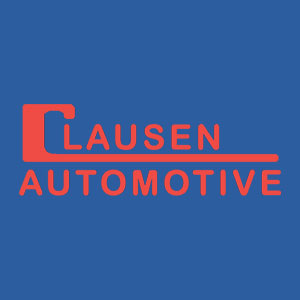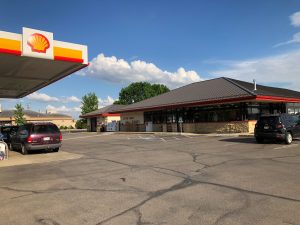
by Blair Butters | Oct 15, 2020 | Client Features
Today we are excited to introduce you to Steven (Steve) Clausen, owner and operator of Clausen Automotive and P&B Truck Accessories. The Road to Entrepreneurship Fueled by a desire to be self-employed and to use the skills he learned working at Chevrolet, Steve set out to purchase his own shop in 1975. The garage was originally located on Milwaukee Street in Madison, WI. Back then, Steve worked on cars and trucks that had carburetors, points, and plugs. All of these are now things of the past and Clausen Automotive has since transitioned to its current location on Stoughton Road, where the types of cars they work on have also evolved… More on that to come. Next to Clausen Automotive sat a retail shop: P&B Truck Accessories. The shop was owned by a company named Penda, who had originally purchased it from 2 gentlemen by the names of Paris and Burns (where the P&B came from). After a few years in business, Penda decided to stick with manufacturing, so the retail business, which sat in a building adjacent to Clausen Automotive, went up for sale. In January of 1990, Steve and his wife decided it would be the perfect opportunity to expand their business. They bought P&B Truck Accessories, which is now the largest truck accessories store in the city of Madison. Changing Gears: Innovation and Success One of the most poignant aspects of Clausen Automotive and P&B Truck Accessories is that they stay nimble and relevant in the current market by adapting to new challenges and industry upgrades. This is a process Steve has prioritized since his first days...
by Blair Butters | Aug 28, 2020 | Uncategorized
As part of the Appropriations Act of 2020 that was signed into effect at the end of 2019, several tax laws were extended (sometimes called the “extenders”) that had previously expired on December 31, 2017. Three of the more common tax items that were extended include the Nonbusiness Energy Property Tax Credit, the Mortgage Forgiveness Exclusion, and a Mortgage Insurance Premium Deduction. The applicability of these tax items was extended to the 2020 tax year and was made retroactive to December 31, 2017, meaning you can amend your 2018 and 2019 tax returns to include these items. Therefore, it could be in your best interest to see if they apply to you. The Energy Tax Credit – Nonbusiness Energy Property Tax Credit This credit applies to certain energy improvements to your principal residence. Qualified energy improvements include items such as installing new exterior windows or doors or home insulation. Residential energy improvement costs include installing certain water heaters, furnaces, and cooling systems. To qualify for the credit, the improvement must meet certain energy efficiency standards and be installed and ready to use prior to the end of the tax year. To document that the improvement qualifies for the credit, you can rely on a certification statement from the manufacturer of the product. For items such as windows, doors, and insulation, you can claim 10% of the cost of the improvement, with a $2,000 lifetime limit for windows. Note that only the actual cost of the product applies to the credit, not the installation cost. Furnaces and cooling systems have set amounts for the credit and the installed cost qualifies....
by Blair Butters | Jul 24, 2020 | Uncategorized
It’s no secret that the coronavirus has substantially impacted our economy. If you’re a business owner, chances are you applied for one of the business relief programs that were made available as part of the CARES Act (Coronavirus Aid, Relief, and Economic Security Act), a $2 trillion stimulus package that went into effect on March 27, 2020. One of the temporary programs of the stimulus package was the Paycheck Protection Program (PPP) loan. Though the PPP loan application deadline has been extended to August 8, 2020, the businesses that applied for the loan in April and May are now turning their attention to the Loan Forgiveness application. So, what exactly is the PPP loan and what do you need to know about the forgiveness application process? What is the Paycheck Protection Program Loan? At its foundation, the PPP loan was created with one simple set of rules: businesses who qualified to receive the loan have 8 weeks to spend the loan proceeds on payroll and state payroll taxes and certain non-payroll expenses, which include rent, utilities, and mortgage interest (if applicable), with a maximum spend of 25% on the non-payroll items. However, as part of the PPP Flexibility Act, the SBA added in a 24-week option and gave businesses a little more flexibility by allowing them to spend up to 40% on the specified non-payroll expenses during that time. At the end of the 8 (or 24) week period, the business may have some or all of the loan forgiven depending on how the money was spent and whether the number of full-time equivalent employees changed as compared to...

by Blair Butters | May 27, 2020 | Client Features
A look into the past, present, and future of a successful and dedicated entrepreneur A Look into the Past One decision can change everything, and for Dick Powell, it did. Dick grew up in an entrepreneurial household with a father who worked full-time as a farmer and operated a trucking company as a second business. Dick graduated from Iowa State University with a BS degree in Agriculture. Upon graduation, he accepted a job with Amoco Oil in the fertilizer manufacturing business. While at Amoco, Dick served as the bridge between Amoco and the petroleum marketers who re-sold Amoco petroleum products. Dick thought he was going to be with Amoco for the remainder of his work career. But, his future changed suddenly when he was asked to transfer to Philadelphia. For family reasons and his love of Wisconsin, he decided to leave Amoco without another job lined up. During the 20 years that he worked for Amoco, his interest in being a Jobber, or wholesaler, grew. This interest led him to a small Jobber in Wisconsin (Fletcher Oil Company, a petroleum marketer for Shell petroleum products) that was looking to sell some assets. These included several convenience stores, car repair stations, a bulk motor oil business, HVAC, and bulk distribution to farmers, commercial customers, and dealers. The purchase of assets from Fletcher Oil Company, which he renamed to Wisconsin Petroleum Inc (WPI), was long and challenging. Dick struggled to find a banker to help finance his new business; he went through three rejected proposals before finding a banker who was willing to take the risk with him. The final agreement...
by Blair Butters | Mar 9, 2020 | Uncategorized
When tax time rolls around, you may be wondering, “what happens if I can’t afford my tax bill?” Perhaps you file on time but know you won’t be able to pay your bill in full. Or, maybe you weren’t expecting a tax bill at all and don’t have enough money saved to pay. If you can’t afford your tax bill, don’t panic. More than half of millennials don’t have $500 set aside for a tax bill, so you’re not alone. There’s a handful of options available to help you. The most important thing you can do if you can’t afford your bill is to be proactive. Avoid waiting for the IRS to call, as the penalties and limitations may be much harsher. The IRS may be more likely to accommodate if you create a record of honest, dedicated communication. How do I pay my tax bill off? The due date for paying your 2019 taxes is the due date of your return, April 15, 2020. Even if you file for an extension, the IRS expects you to estimate the amount of tax due and pay your tax bill by April 15. If you file on time but do not pay timely, the IRS will charge you interest, currently a 5% annual rate (subject to change each quarter) on unpaid tax bills. In addition, you may be charged a 0.5% per month “failure to pay tax” penalty (maximum of 25%). If you plan to pay the amount due in a few months, plan to file your return by the due date, figure out what you can afford to pay monthly...




Recent Comments